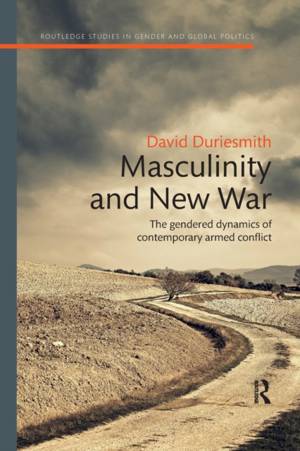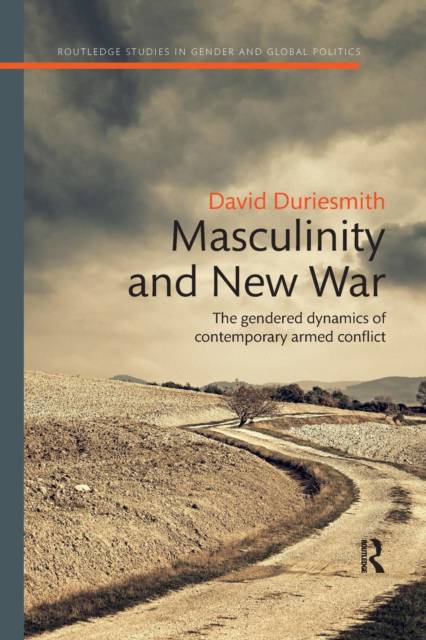
- Retrait gratuit dans votre magasin Club
- 7.000.000 titres dans notre catalogue
- Payer en toute sécurité
- Toujours un magasin près de chez vous
- Retrait gratuit dans votre magasin Club
- 7.000.0000 titres dans notre catalogue
- Payer en toute sécurité
- Toujours un magasin près de chez vous
Description
This book advances the claims of feminist international relations scholars that the social construction of masculinities is key to resolving the scourges of militarism, sexual violence and international insecurity. More than two decades of feminist research has charted the dynamic relationship between warfare and masculinity, but there has yet to be a detailed account of the role of masculinity in structuring the range of volatile civil conflicts which emerged in the Global South after the end of the Cold War.
By bridging feminist scholarship on international relations with the scholarship of masculinities, Duriesmith advances both bodies of scholarship through detailed case study analysis. By challenging the concept of 'new war', he suggests that a new model for understanding the gendered dynamics of civil conflict is needed, and proposes that the power dynamics between groups of men based on age difference, ethnicity, location and class form an important and often overlooked causal component to these civil conflicts.
Exploring the role of masculinities through two case studies, the civil war in Sierra Leone (1991-2002) and the Second Sudanese Civil War (1983-2005), this book will be of great interest to postgraduate students, practitioners and academics working in the fields of gender and security studies.
Spécifications
Parties prenantes
- Auteur(s) :
- Editeur:
Contenu
- Nombre de pages :
- 146
- Langue:
- Anglais
- Collection :
Caractéristiques
- EAN:
- 9780367221492
- Date de parution :
- 17-01-19
- Format:
- Livre broché
- Format numérique:
- Trade paperback (VS)
- Dimensions :
- 156 mm x 234 mm
- Poids :
- 217 g

Les avis
Nous publions uniquement les avis qui respectent les conditions requises. Consultez nos conditions pour les avis.






